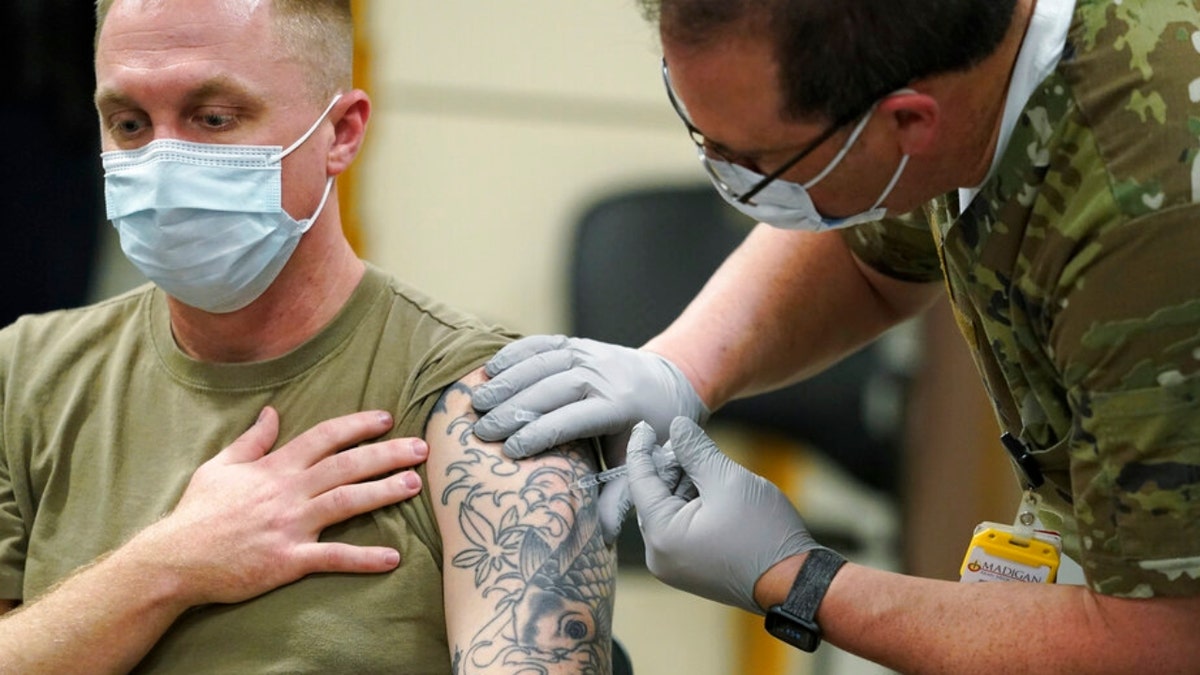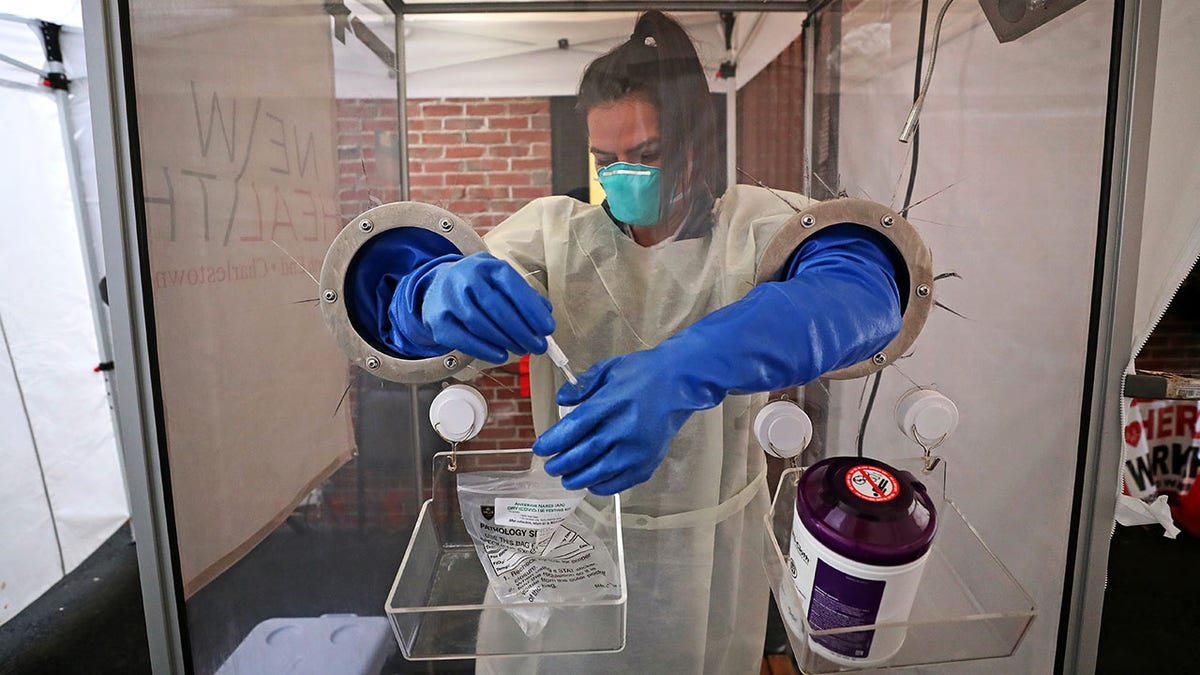Shannon Bream discusses new Army pan-COVID vaccine with Dr. Marty Makary
The Army announced promising results from phase 1 trials for a vaccine it created to potentially combat all variants of COVID-19
The U.S. Army has developed a vaccine it says may provide protection against all COVID-19 variants.
The Walter Reed Army Institute of Research (WRAIR) developed a 24-sided object to which it attached various protein spikes from coronavirus variants. The vaccine has completed phase 1 trials, but researchers have yet to test it against the omicron variant, an Army spokesman told Fox News.
Researchers received a sample in early 2020 and focused efforts on developing a vaccine that would work against potential variants. Two years later, the initial results show promise.

FILE - Staff Sgt. Travis Snyder, left, receives the first dose of the Pfizer COVID-19 vaccine given at Madigan Army Medical Center at Joint Base Lewis-McChord in Washington state, Dec. 16, 2020, south of Seattle. The Army says 98% of its active duty force had gotten at least one dose of the mandatory coronavirus vaccine as of this week’s deadline for the shots. (AP Photo/Ted S. Warren, File)
The phase 1 human trials commenced April 2021. Scientists hailed the early data as encouraging and will publish final phase 1 study results once they complete the analysis.
The theory behind the development of the Spike Ferritin Nanoparticle Platform (SpFN) vaccine posits that introducing multiple copies of spike proteins in an "ordered fashion" may prove key to creating a "potent and broad response."

Part of the Walter Reed Army Medical Center (WRAMC) in Washington, DC, USA, circa 1960. (Photo by Harvey Meston/Archive Photos/Getty Images)
"This vaccine stands out in the COVID-19 vaccine landscape," said Dr. Kayvon Modjarrad, director of the Emerging Infectious Diseases Brance at WRAIR. "The repetitive and ordered display of the coronavirus spike protein on a multi-faced nanoparticle may stimulate immunity in such a way as to translate into significantly broader protection."
COVID-19: AUSTRIA ADDS RESTRICTIONS TO NEW YEAR'S EVE PARTIES
Pre-clinical studies published in Science Translational Medicine indicate protection against the original strain of COVID-19 as well as variants that emerged from the original SARS-CoV-1 virus from 2002.

BOSTON, MA - JANUARY 7: An LPN puts away a patient testing kit from behind a plexiglass compartment at a walk-up COVID-19 testing site at a tent on the North Bennet Street alleyway in Boston's North End on Jan. 7, 2021. (Getty Images)
"It's very exciting to get to this point for our entire team and I think for the entire Army as well," Modjarrad told DefenseOne. "With Omicron, there's no way really to escape this virus. You're not going to be able to avoid it. So I think pretty soon either the whole world will be vaccinated or have been infected."
COVID-19 PANDEMIC: CHINA ISSUES LOCKDOWN OF 13 MILLION PEOPLE
One of the chief points of interest concerns how the vaccine interacts with people who have already received a vaccination or had a previous infection.
WRAIR will work with a currently unnamed industry partner for a potential wider rollout, but that rollout likely won’t happen for a year, Dr. Marty Makary told Fox News host Shannon Bream.
CLICK HERE TO GET THE FOX NEWS APP
"You're getting a lot of different levels of immunity, not just to the spike protein," Makary explained. "It's in phase one clinical trials. They just announced the results. So it's about a year away from being out there."
Fox News' Jennifer Griffin contributed to this report.










































